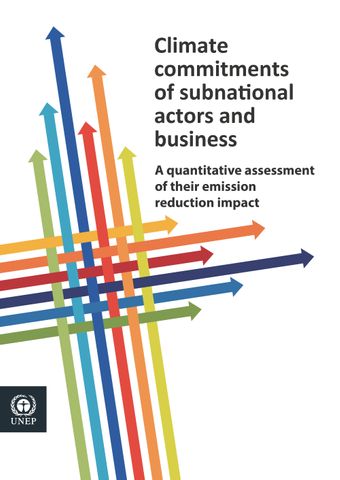Initiatives of cities and regions

- Author: United Nations Environment Programme
- Main Title: Climate Commitments of Subnational Actors and Business , pp 11-14
- Publication Date: March 2016
- DOI: https://doi.org/10.18356/a44fcc4c-en
- Language: English
Cities are central to the world’s efforts to address the threat of climate change. The IPCC estimates that urban areas account for 71–76% of energy-related CO2 emissions and that the world’s cities produce almost half (37–49%) of all global greenhouse gases (Christ, 2014). City initiatives enable participating cities or mayors to lead, show their national governments the extent of actions they are already undertaking and to positively influence national level strategies and policies. The initiatives cover all sizes of towns and cities. Similarly, at the subnational level, various forms of decentralisation offer subnational governments the responsibility to plan and establish their own (institutional) mechanisms to approach climate change mitigation. Subnational jurisdictions, such as state or regional governments, have even attempted to compensate for the lack of political will at the national level (Somanathan et al., 2014).
-
From This Site
/content/books/9789210602327c009dcterms_title,dcterms_subject,pub_keyword-contentType:Journal -contentType:Contributor -contentType:Concept -contentType:Institution105

